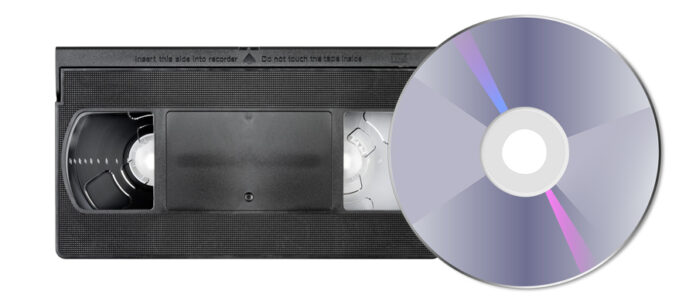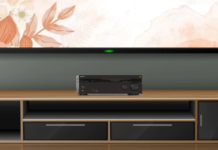If you want to keep the memories you have on VHS tapes alive, you’ll need to get them off videotape and onto a digital format. Two of the most common digital formats to have your tapes converted to are digital video discs (DVD) and universal serial buses (USB).
This blog will dive into why you should convert your VHS tapes to DVD or USB, which option is best for you, and why you should opt for using a professional VHS to digital transfer service.
Why Should You Convert Your VHS Tapes to DVDs?
Here are some top reasons to convert your VHS tapes to DVDs.
- DVDs have a longer lifespan than VHS tapes. VHS tapes can degrade over time, which can cause the video and audio quality to deteriorate. On the other hand, DVDs can last for decades if they are correctly stored.
- DVDs are more convenient to watch than VHS tapes. DVDs can be played on various devices, including DVD players, gaming consoles, and computers, whereas VHS tapes can only be played on VHS players.
- DVDs take up less space than VHS tapes. DVDs are smaller and lighter than VHS tapes, which makes them easier to store and transport.
- DVDs are easier to share than VHS tapes. You can easily share DVDs with friends and family by mailing them or giving them a digital copy, whereas sharing VHS tapes requires physically sending them.
Converting your VHS tapes to DVDs helps preserve your memories for future generations and makes watching and sharing your favourite videos easier.
Why Should You Convert Your VHS Tapes to USB?
You can convert your VHS tapes to a USB drive, and here are some reasons why you should.
- USB drives also have a longer lifespan than VHS tapes.
- USB drives are more convenient to watch than VHS tapes. USB drives can be played on many devices, including computers, laptops, and some TV models, whereas VHS tapes can only be played on VHS players.
- USB drives take up less space and are easier to store than VHS tapes. USB drives are small and light, making them easier to store and transport.
- You can also store many videos on one USB. USBs come in all different storage sizes, such as megabytes (MB), gigabytes (GB), or even terabytes (TB). USB drives can be so large that you can store all your videos in one unit.
- USB drives are easier to share than VHS tapes. You can easily share USB drives with friends and family by mailing them or giving them a digital copy, whereas sharing VHS tapes requires physically sending them.
Transferring your VHS tapes to a USB drive will conveniently preserve your memories and make watching and sharing your videos simple.
Deciding Which Option Works For You
Ultimately, the choice comes down to whichever option works best for what you plan to do with the videos after they have been converted.
If you plan to watch them in your own home and pass them on to family members, converting them to a DVD is best. You can watch your videos in high definition on a large screen with optimal sound quality, and DVD players are still easy to find.
If you plan on sharing your videos with others, you should convert them to a USB. The stick or device is small and can be passed or mailed. You can also email your videos to friends and family. Many televisions today can connect to your computer, allowing you to watch your movies on a larger screen.
Whichever option you choose, having a professional video to DVD conversion service such as Capture convert your videos is an excellent idea. A video transfer service can ensure top-quality formatting on the new device you have chosen and will save you the time, money, and effort of doing the complicated process yourself.
Conclusion
When you’re ready to transfer your VHS tapes to a more permanent, accessible, and higher-quality digital format, you should trust a professional service such as Capture. They can help you quickly and easily transfer your old VHS tapes to DVD, USB, or any other format you need.


















